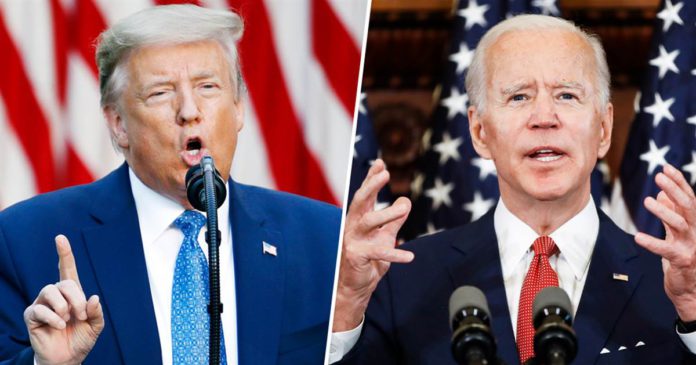The world was well aware that the US presidential election was unlikely to conclude quickly.
Record early and mail-in voting meant that America’s allies would have to sit tight and wait to see which of the wildly different candidates would occupy the most powerful office on earth for the next four years.
Even if incumbent President Trump were a traditional candidate who could be trusted to respect the election result, any diplomat worth their salt would remain tight-lipped until they knew exactly who they’d be dealing with at NATO, the United Nations, and every other international forum.
Commenting on another country’s electoral process before it’s complete is not common; neither is the incumbent prematurely declaring victory and making up his own election rules.
This election matters more to US allies than any other in recent memory. It’s frankly impossible to do anything significant on the world stage without the president’s buy-in, and Trump has a clear view of America’s role in the world: He pulled out of the World Health Organization in a pandemic.
He talks about withdrawing funding for NATO, music to Russia and China’s ears. He tore up a treaty that stopped Iran from making nuclear weapons and withdrew from an agreement on climate change.
No matter how difficult Trump is to deal with, a good relationship with the White House is essential. It does, however, put allies in a tight spot when Trump decides to attack the democratic process itself.
Dominic Raab, Britain’s foreign secretary, has already faced backlash for refusing to condemn Trump’s wild claims. He tweeted sheepishly later that the “UK-US relationship is in great shape and we are confident it will go from strength to strength whichever candidate wins the election.”
The bigger picture: Over the past four years, it’s become clear that Trump has no problem with punishing people he feels besmirch him.
Suggesting that he might be trying to delegitimize the election is probably a swift way to get allies taken off his Christmas card list. So after decades of criticizing other countries when a fair democratic process appears to be under threat, most of America’s friends are waiting this one out in silence.
Allies will be quick to start building relationships with a President-elect Joe Biden if that’s how this shakes out. But right now, they cannot risk upsetting sitting President Trump. And the longer the battle for the presidency goes on, the more awkward that silence could be to maintain.

